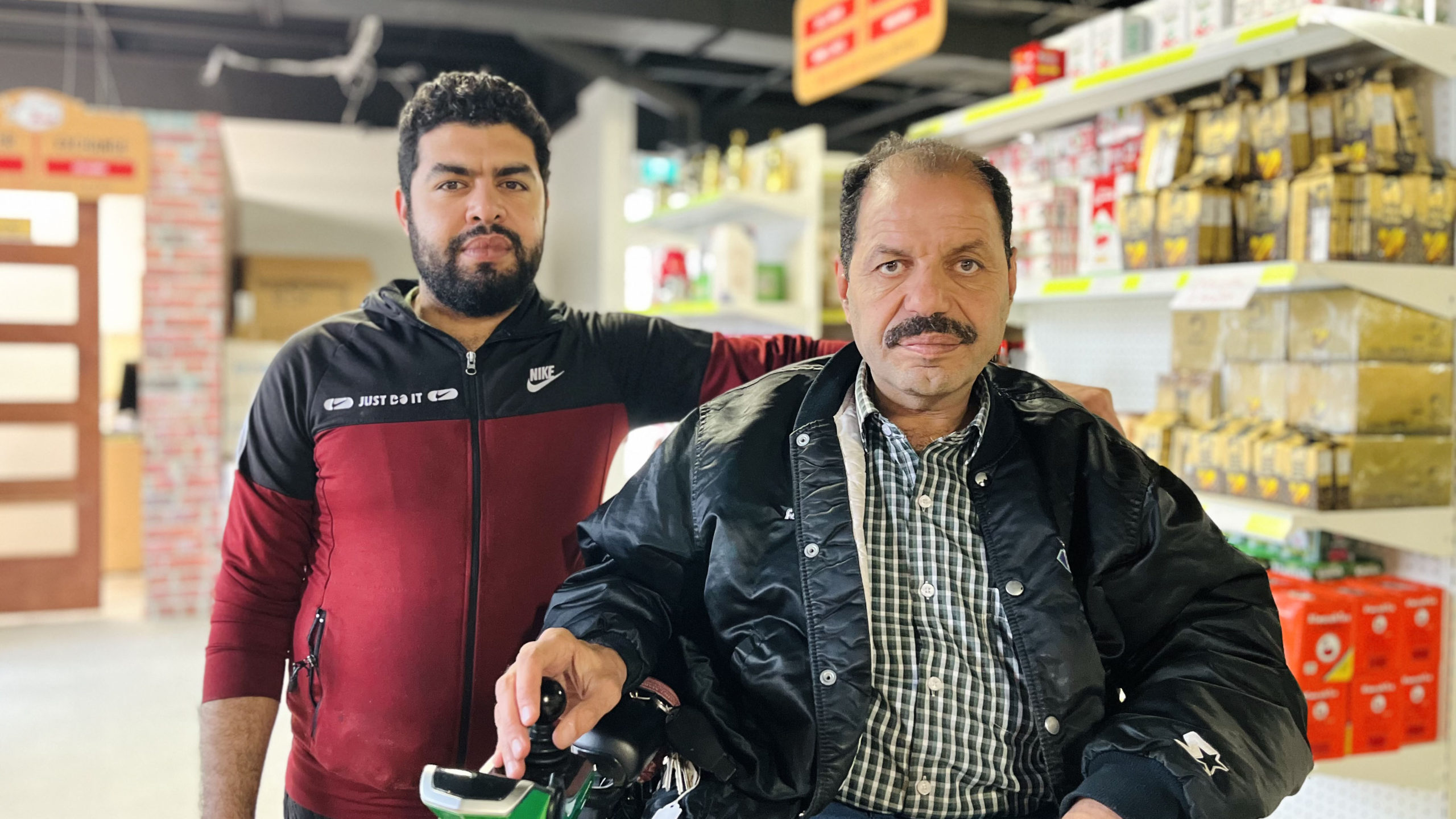Haligonians worry for loved ones following Turkey’s deadly earthquake
Canada prepared to help victims as death toll climbs in Turkey and Syria

caption
Rafat Harb and his father Mohammad Harb are worried about their friends in Syria and Turkey, which were struck by a large earthquake on Monday.Haligonians are worrying for their families and friends in Turkey and Syria following a deadly earthquake that hit Turkey early Monday.
The 7.8 magnitude earthquake struck Turkey and was felt through Syria and Lebanon, killing more than 2,700 people and injuring hundreds more. These numbers are expected to rise as people are pulled from the rubble.
“I have friends and I just sent a WhatsApp message to them and they say that they are OK, but their families are under wreckage — their building is collapsed,” said Ilker Dalgiç, a board member for the Turkish Society of Nova Scotia.
He moved to Canada from Istanbul two years ago.
“My family is on the western side so they are not directly affected, but all of us have somebody we know, so it’s devastating,” he said. “My wife’s friend who lives there, she lost her aunt and her cousin.”
Rafat Harb owns Syriana Market in Halifax and his family is from Daraa, Syria. He said he also has family in Turkey.
“I was afraid,” he said about waking up and seeing collapsed buildings on the news.
“I have a friend in Turkey, he was just out of the house — he was on the street with his family all night.”
Harb said all his loved ones back home are OK, but his thoughts are with other members of the community who are worried for their family and friends.
Drone footage shows the scale of devastation in Turkey and Syria caused by two earthquakes and aftershocks :arrow_heading_down:
:red_circle: LIVE updates: https://t.co/FRLf9rE4t6 pic.twitter.com/Ymx55S8y8Y
— Al Jazeera English (@AJEnglish) February 6, 2023
The earthquake initially struck in Turkey’s Kahramanmaras province and is the strongest to hit the region in over 83 years. The last one of that magnitude was recorded in 1939 and killed over 30,000 people.
In terms of earthquakes, a magnitude of 7.8 is “pretty big,” said Lindsay Schoenbohm, geologist and earth science professor at the University of Toronto.
Earthquakes are based on a logarithmic scale, she said, so every time you go up one order of magnitude you go up thirty times in terms of the shaking that you feel, the maximum being a 9.5.
Earthquakes are like breaking a stick, Schoenbohm said.
“You know you kind of bend a stick, and you bend it more,” she said, “and then all of a sudden it releases with a snap, and that’s the strain being released and then it produces vibrational energy that you feel in your hands — so the same thing happens with an earthquake.”
The most dangerous aftershocks will continue in Turkey and Syria throughout the week, she said.
In a statement, Prime Minister Justin Trudeau said that Canada stands ready to help those affected by Monday’s earthquake.
The reports and images from Turkey and Syria are devastating. Our thoughts are with everyone affected by these major earthquakes, and our hearts go out to those who lost loved ones. Canada stands ready to provide assistance.
— Justin Trudeau (@JustinTrudeau) February 6, 2023
Dalgiç said the Turkish Society of Nova Scotia is working on a donation campaign with help from Credit Union Atlantic. Funds will be sent to ‘Friends of Ahbap,’ a fundraising platform that is distributing donations to areas affected by the earthquake.
Those who wish to donate can find information on the society’s Instagram or Facebook accounts, said Dalgiç.
About the author
Ella Macdonald
Ella Macdonald (she/her) is an aspiring video reporter and photojournalist with an interest in world affairs and health reporting. Originally...
